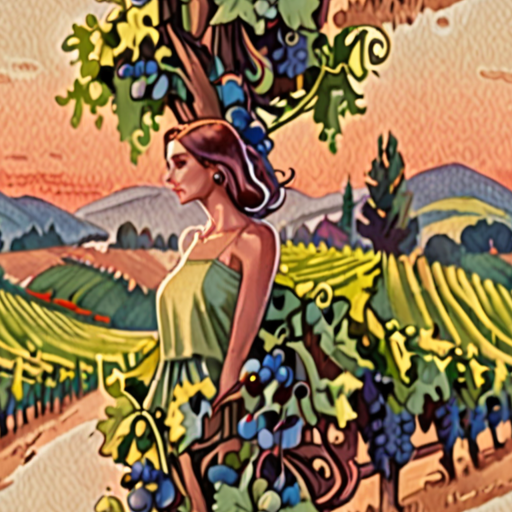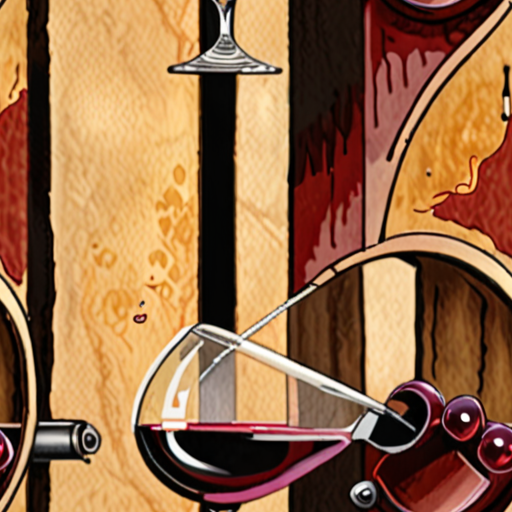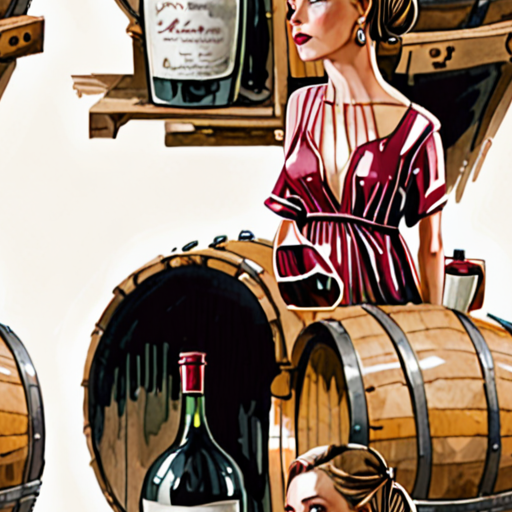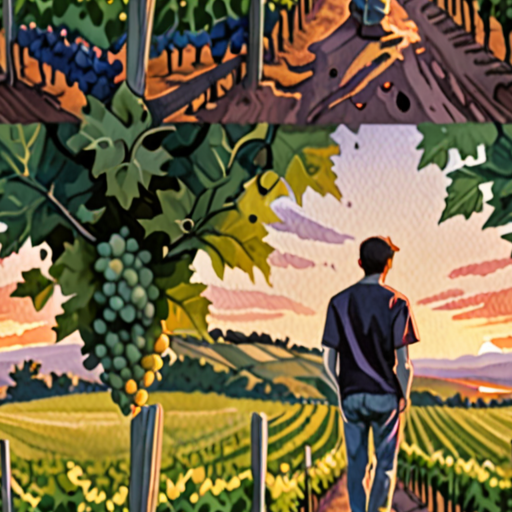“`html
Embark on a cultured journey into the intricate world of wine tasting etiquette, where mastering the art of tasting not only elevates your experience but also unveils a deeper appreciation for the nuances of wine. This guide is your compass through the subtle rules and rich techniques of wine tasting, from understanding the 5 C’s of wine tasting to navigating etiquette at wineries. Whether you’re pondering the simple query, “how much do you tip at a wine tasting?” or exploring the etiquette of drinking versus spitting out wine, we’ll weave through these intricacies and more. Prepare to enhance your wine tasting adventures with insights, tips, and advice that transform each sip into a memorable experience. Our exploration includes everything from preparing for the tasting, what to do if you don’t drink at a winery, to the essential wine tasting tips that seasoned enthusiasts swear by. So whether you’re a novice eager to take your first steps at a vineyard or a connoisseur looking to refine your expertise, this write-up serves as your indispensable guide to the subtle art of wine tasting etiquette.
“`
Etiquette for Wine Tasting
When attending a wine tasting event, it’s essential to understand the etiquette involved to fully appreciate the experience.
- Taste the wine in small sips, not large gulps, allowing the flavors to unfold on your palate.
- Swirl the wine in your glass before taking a sip to release the aromas and appreciate the color and viscosity.
- Observe the wine’s appearance, noting its color, clarity, and viscosity.
- Smell the wine, taking note of the aromas and intensity.
- Taste the wine, evaluating its flavor, acidity, tannins, and finish.
- Pay attention to the wine’s texture and mouthfeel, noting whether it feels smooth or rough.
- Consider the wine’s balance, harmony, and overall character.
Key Principles of Wine Tasting Etiquette
The following principles will help you navigate wine tastings with confidence:
- Be respectful of the winemaker and the wine itself.
- Arrive prepared, having done research on the wines being poured.
- Ask questions and engage with the winemakers and other attendees.
- Take notes to record your impressions and observations.
- Don’t be afraid to ask for a second pour or clarification on a particular aspect of the wine.
Additional Tips for Wine Tasting Etiquette
To further enhance your wine tasting experience:
- Use the correct terminology when describing the wine, such as “nose,” “palate,” and “finish.”
- Avoid strong perfumes or colognes, which can interfere with your sense of smell.
- Don’t touch the wine glasses with your bare hands, as oils from your skin can affect the taste.
- Keep your phone on silent mode and refrain from taking photos during the tasting.
- Be mindful of your body language and posture, sitting up straight and making eye contact with the winemakers.
Best Practices for Wine Tasting Etiquette
By following these guidelines, you’ll be well on your way to becoming a confident and knowledgeable wine enthusiast:
- Stay hydrated throughout the tasting to keep your palate refreshed.
- Avoid eating strong-smelling foods before the tasting, as they can overpower your sense of smell.
- Don’t overstay your welcome, allowing others to participate in the tasting.
- Be respectful of the wine’s temperature, serving it at the recommended temperature.
- Take your time and don’t rush through the tasting, allowing yourself to fully appreciate each wine.
The 5 Cs of Wine Tasting
As a wine enthusiast, understanding the 5 Cs of wine tasting can elevate your appreciation and enjoyment of fine wines.
- COLOR
- CLARITY
- CONSISTENCY
- CONCENTRATION
- CHARACTER
The color of wine is its first visual impression, ranging from pale yellow to deep red, depending on the grape variety and aging process. A well-balanced wine typically has a vibrant color that reflects its age and quality.
Clarity refers to the wine’s transparency and freedom from sediment. A clear wine indicates good winemaking techniques and minimal oxidation during storage.
Consistency refers to the wine’s texture and viscosity. A smooth, consistent wine suggests good balance between acidity and tannins.
Concentration measures the wine’s intensity and complexity. A concentrated wine often exhibits rich flavors and aromas, indicating high-quality grapes and careful winemaking.
Character encompasses the wine’s overall personality, including its flavor profile, aroma, and finish. A well-crafted wine showcases its unique character, reflecting the terroir, grape variety, and winemaking style.
By considering these five essential components, you’ll develop a deeper understanding and appreciation of wine, enabling you to make informed decisions when selecting the perfect bottle for any occasion.

Tipping Wine Tasting Staff
When visiting a winery or participating in a wine tasting event, it’s customary to show appreciation for the staff’s expertise and service by leaving a gratuity.
- Stand-up Bar Tastings:
- Recommended tip: $10-$15 per person
- This amount reflects the level of interaction and personalized attention typically received during stand-up tastings.
- Some wineries may have a minimum purchase requirement before tipping is expected.
- Seated Tastings:
- Recommended tip: $15-$20 per person
- Seated tastings often involve a more extensive wine selection and a more immersive experience, warranting a slightly higher gratuity.
- Be sure to check with the winery beforehand to confirm their tipping policies.
- Boutique Wineries:
- Recommended tip: $20-$25 per person
- Boutique wineries often offer unique and exclusive experiences, justifying a higher gratuity for exceptional service and expertise.
- Don’t hesitate to ask your server or host about their recommended tipping guidelines.
Remember, these are general guidelines, and the actual tipping amount may vary depending on the specific winery, the quality of service, and your personal preference.
Always consider the overall cost of the tasting, the number of wines sampled, and the level of interaction with the staff when determining the tip amount.
By showing appreciation for the wine tasting staff through a thoughtful gratuity, you’ll not only enhance your own experience but also contribute to the success of the winery and its employees.

Spitting Wine at Tastings
When attending wine tastings, many people wonder whether spitting wine is acceptable.
- Wine experts recommend spitting wine during tastings to preserve palate sensitivity and prevent over-intoxication.
- Some wine tastings may have designated spitting areas or encourage participants to spit wine into a communal container.
- However, others might frown upon spitting wine, viewing it as impolite or uncivilized.
- Ultimately, the decision to spit wine depends on personal preference and the specific event or gathering.
Why Spit Wine?
There are several reasons why wine experts advocate for spitting wine:
- To preserve palate sensitivity: Spitting wine allows tasters to cleanse their palates between samples, preventing the buildup of residual flavors and aromas that can affect subsequent tastings.
- To prevent over-intoxication: Drinking too much wine can impair judgment and lead to poor decision-making, which is particularly concerning in professional settings like wine tastings.
- To maintain a clear head: By spitting wine, tasters can stay alert and focused throughout the tasting, allowing them to appreciate the nuances of each wine more effectively.
Etiquette Considerations
While spitting wine is generally accepted in wine circles, there are certain etiquette considerations to keep in mind:
- Be mindful of your surroundings: If you’re in a crowded room or sharing a table with others, consider discreetly spitting wine into a cup or glass rather than a communal container.
- Respect the host or organizer: If the event has a designated spitting area or encourages spitting, be sure to follow their guidelines and respect their wishes.
- Don’t overdo it: While spitting wine is acceptable, don’t feel obligated to spit every drop – it’s perfectly fine to drink small amounts if you prefer.
Conclusion
Whether or not to spit wine at tastings ultimately depends on individual preferences and the specific event or gathering.
By understanding the reasons behind spitting wine and following basic etiquette guidelines, you can navigate wine tastings with confidence and appreciation.
Do You Actually Drink the Wine at a Wine Tasting?
The age-old question that has puzzled many a wine enthusiast: do you actually drink the wine at a wine tasting? The short answer is yes, but with some caveats.
- While it’s true that spitting out wine is a common practice during wine tastings, it’s not always necessary to do so.
- In fact, many wine experts recommend drinking small amounts of wine during a tasting to get a sense of its flavor profile and texture.
- This approach allows you to appreciate the nuances of the wine and make more informed decisions about which bottles to purchase.
The Benefits of Drinking Wine at a Tasting
Drinking wine at a tasting can have several benefits:
- You’ll get a better sense of the wine’s flavor profile and texture.
- You’ll be able to appreciate the wine’s acidity, tannins, and finish.
- You’ll be able to compare different wines side-by-side and make more informed decisions about which ones to purchase.
The Risks of Drinking Too Much Wine at a Tasting
Of course, there are also risks associated with drinking too much wine at a tasting:
- You may become intoxicated and lose your ability to taste and evaluate the wine.
- You may experience hangover symptoms the next day, which could impact your enjoyment of future wine tastings.
- You may feel uncomfortable or embarrassed if you’re unable to keep up with the pace of the tasting.
When to Spit Out Wine at a Tasting
There are certain situations in which it’s perfectly fine to spit out wine at a tasting:
- If you’re trying a very strong or full-bodied wine, it may be overwhelming to drink it all.
- If you’re trying a series of wines in rapid succession, it may be difficult to keep track of which ones you’ve had and how much you’ve consumed.
- If you’re concerned about getting drunk or experiencing hangover symptoms, it’s always better to err on the side of caution and spit out the wine.
Conclusion
Ultimately, whether or not to drink wine at a tasting is up to personal preference.
However, by understanding the benefits and risks associated with drinking wine at a tasting, you can make more informed decisions about how to approach these events and get the most out of your wine-drinking experience.

What Not to Do Before Wine Tasting
To fully appreciate the nuances of fine wines, it’s essential to approach the tasting experience with a clear palate.
- Avoid eating strong-smelling foods like garlic, onions, or pungent cheeses at least two hours prior to the tasting.
- Steer clear of citrus fruits, vinegar-based dressings, or other acidic substances that can alter your taste buds.
- Refrain from consuming spicy or minty foods, as these can overpower the delicate flavors of the wine.
- Don’t chew gum or suck on hard candies, as these can leave lingering flavors that may interfere with your ability to detect subtle notes in the wine.
- Brushing your teeth immediately before the tasting is also not recommended, as the mint flavor can linger and affect your perception of the wine.
Additionally, try to minimize exposure to strong odors, such as perfume or cigarette smoke, which can impact your sense of smell and, subsequently, your ability to appreciate the wine’s aromas.
By avoiding these common pitfalls, you’ll be able to fully engage your senses and enjoy a more immersive wine-tasting experience.
Pre-Tasting Precautions
Before arriving at the tasting room, take a few moments to prepare yourself:
- Take a short walk outside to get some fresh air and clear your head.
- Drink plenty of water to stay hydrated and refresh your palate.
- Consider taking a few deep breaths to calm your nerves and center yourself.
Conclusion
By being mindful of what you eat and drink before a wine tasting, you’ll be able to fully appreciate the complexities and nuances of fine wines.
Remember to approach the experience with an open mind and a clear palate, and don’t hesitate to ask questions or seek guidance from the sommelier or wine expert leading the tasting.
0 Comments